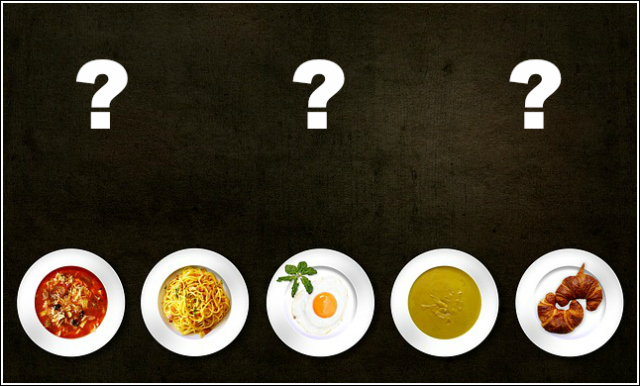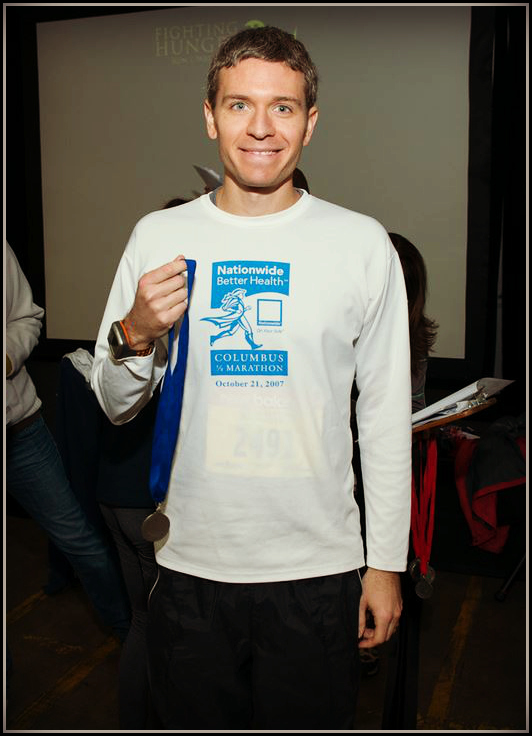Every day there’s a new fad diet that promises “effortless” weight loss and boundless energy. But ask yourself: do you seriously believe the hype?

Every diet subculture loves that hype. Go paleo, or raw, or vegan! Ditch the carbs! Avoid gluten! Load up on protein and fat!
It’s time to take a deep breath, pause, and get back to nutrition basics. Because instead of chasing the next fad or extreme diet, there’s a simpler way that’s far less confusing.
For many runners trying to fuel workouts and train for races, it’s even more confusing than for a sedentary person who doesn’t need to worry about fueling for workouts and races.
Earlier this week I asked about your questions. And I’ve heard them all!
Should I avoid carbs or do I need them to run well?
Is canola oil bad for you? What about saturated fat?
Should I eat before my run or should I run fasted?
How many carbs do I really need to run my marathon well?
We’re dispelling the myths about nutrition for runners and tackling your toughest questions.
Today, I want to show you how simple nutrition can be when you focus on fundamentals rather than fad diets or extremes.
Meet Aaron: “I had given up on running another marathon”
Like many of us, Aaron was frustrated by the lack of relevant, credible nutrition advice on the web.
Aaron had run in high school but not in college, and when he resumed running as an adult he found himself struggling with the nutrition component of his training.
He ran a marathon several years ago, but with training and fueling challenges he thought he’d never attempt one again.
When Aaron first looked for advice on running and nutrition, he had a hard time finding useful information that wasn’t exclusively focused on weight loss.
Rather than weight loss, he wanted to get the most from his training and racing rather than just cutting calories. Aaron told me: 
I had been trying to eat healthier but had some difficulty finding recipes and credible nutrition advice for runners rather than for weight loss.
A nutrition program from someone I trusted that was geared specifically toward runners was exactly what I needed.
When Aaron discovered our free nutrition information, he was excited to finally figure out proper marathon nutrition.
While we do discuss weight loss, the primary focus is how to eat in a healthy, sustainable way to fuel an active lifestyle and optimize your running, no matter what distance you’re training to complete.
Training for a longer race like the marathon presents a unique set of fueling challenges. When running higher mileage you have to eat enough calories to support your workouts, but you also want to time your fueling to make it most effective before, during and after your runs.
Learning how to do this properly is critical to marathon success, but Aaron’s previous fueling efforts had left him frustrated:
I had given up on running a marathon after my last one several years ago, but I was starting to think about trying again with better strength and nutrition.
I knew your nutrition material would give me the information I needed to correct my nutrition issues during marathon training.
Big changes don’t come easily (or quickly), but Aaron made several small, strategic changes to his diet to ensure success.
“It’s hard, but I don’t have to be perfect.”
Eating enough calories is important, but let’s not forget about the quality of those calories. While you can get a meal’s worth of calories from frozen pizza, is that the best choice for hard-working runners?
We all know that it’s not. Nutrient dense foods are critical for distance runners and Aaron made one small change that catapaulted his progress:
I switched my breakfast from cereal with milk and fruit to either Ezekiel bread and peanut butter and fruit or Greek yogurt with granola and fruit. I also now try to incorporate the three macronutrients into every meal.
This one small change was incredibly effective because if you try to make too many changes at once (or one enormous dietary change), it can become overwhelming. Instead, start with small changes that are both effective and easy to implement, such as those that increase the quality of your diet.
The macronutrients Aaron mentioned are high quality carbohydrate, healthy fat and protein. But what is most important to note here is that Aaron started with a simple change: his breakfast. This was easy, sustainable, and gradually led to other positive changes.
It took a while to fully transition. I started slowly by changing breakfast and only more recently convinced my wife to try some of the recipes for dinner.
It’s still hard sometimes when I’m at a church meal or something and pizza is the only option, but I don’t have to be perfect.
Aaron has hit on an essential tenet of our approach to nutrition that should help you breathe a sigh of relief: you don’t have to be perfect!
Being “perfect” is not realistic, nor is it sustainable. What you do most of the time is far more important than what you some of the time.
This means you shouldn’t eat dessert three times per day, but it also means you can enjoy that decadent slice of chocolate cake once in a while. If it’s a special occasion, treat yo self!
“I’m hardly ever tired and I can run long distances faster and easier”
While changing your eating habits can be a long term process, changes in how you fuel your long runs and races can have an immediate impact.
Fueling appropriately for a variety of workouts, from short recovery runs to long marathon pace efforts, can help you run faster with less fatigue and recover more quickly.
Practice makes perfect, since it can take some trial and error to determine what fuel sources work best for you. For Aaron, this has turned his training into an incredibly positive experience:
I’ve learned how to fuel my long runs properly which has made a huge difference. Over the last year, I’ve really felt good on a consistent basis.
I’m hardly ever tired and my running performance, especially lately since I’ve been more focused on nutrition, has been fantastic.
Aaron’s commitment to his nutrition has helped him achieve impressive results. He found our runner-friendly recipes for breakfast and snack ideas especially useful, as well as the fueling suggestions for different race and training distances.
Knowing he was getting proven nutrition advice specific to his running needs made it an easy decision to join and the value of the program has been outstanding.
In Aaron’s words, the top three benefits include the following:
1. I feel rested and fueled almost all the time.
2. I can run long distances faster and easier than I ever could before.
3. I have a much better idea of what I should be eating and what I can snack on. I’m also learning to read what my body is telling me I need.
This is what nutrition is all about: feeling good, making conscious decisions about your diet, listening to your body and learning what works, and continuing to refine and improve that technique over time.
Labels and fads and guilt shouldn’t be part of this!
If fueling feels overwhelming and mysterious, start here to get the answers to many common nutrition questions.
How to Be Successful Like Aaron
Aaron’s recommendation speaks for itself:
I would definitely recommend Nutrition for Runners to someone with a similar background to me. I learned how to train but I never really learned how to eat to fuel my running.
If I had this knowledge earlier, maybe I wouldn’t have struggled so much in marathons, and I probably would have been able to improve some of my other PRs.
Even though he may regret his lack of knowledge in the past, Aaron has taken the steps necessary to gain that knowledge, and his running and overall health has benefitted tremendously.
With his newfound understanding of nutrition and training, he’ll likely be setting PRs for many years to come.
Sign up here to get the nutrition and fueling lessons to propel your running to new heights. You might just be our next success story!